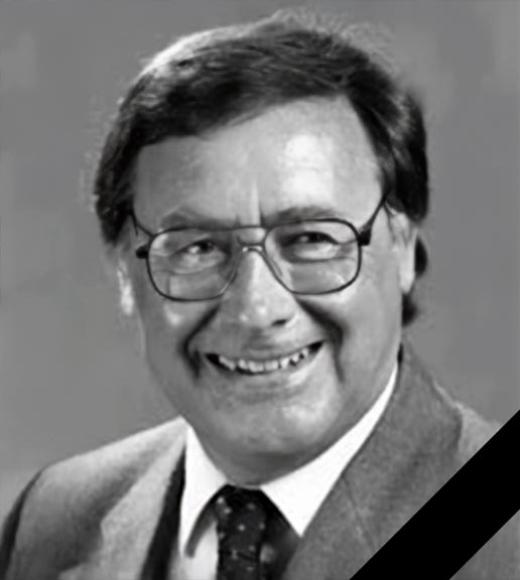
Position Title
In Memoriam
Professor Emeritus, Dean of CA&ES
1931-2019
UC Davis Article (Link)
From the University of California Academic Senate (Link)
Charles E. (Charley) Hess, former dean of the College of Agricultural & Environmental Sciences, died April 13, 2019. Charley was recruited to UC Davis to serve as dean in 1975 after having served as dean of Cook College, Rutgers University, Professor and Chair of Horticulture, Rutgers University, and Professor of Horticulture, Purdue University.
Charley was born December 20, 1931 in Paterson, New Jersey. His parents, Cornelis and Alice Hess, had emigrated from the Netherlands in 1914. Charley's father had worked in the nursery industry in the Netherlands and he established Hess' Nurseries in Mountain View, N.J. The nursery was Charley's playground as a child and it had a dramatic impact on his adult life. As he grew older, he worked in the nursery and learned that he loved horticulture and growing plants. It was in his family's nursery that he learned the skills and developed the confidence to tackle any improvement project as an adult. Hess' Nurseries had a well-earned reputation for producing very high-quality landscape trees. As a teenager, Charley traveled with his father to horticultural industry trade conferences. It was at these trade shows that he made friendships with nursery owners from around the United States. These relationships would prove to be very valuable when Charley interacted with leaders of the California nursery industry as the Dean of the College of Agricultural and Environmental Sciences. He was an excellent student and at Rutgers University he discovered his love for research. Combining his love of horticulture with his love of research established the direction for the remainder of his career.
He graduated with high honors in plant science from Rutgers University, and continued his education in this field at Cornell University for an M.S., and a Ph.D. After finishing his studies, he served in the US Army as First Lieutenant in the Chemical Corps and at the US Army Biological Lab in Fort Detrick Maryland for two years. Charley joined the faculty at Purdue University in 1958, and his research and teaching prowess was quickly recognized by his peers. His administrative skills were evident since within 8 years of having been hired as assistant professor at Purdue University he moved to Rutgers University in 1966 to become chair of the Department of Horticulture and Forestry. Within five years of moving to Rutgers University he was appointed first as acting dean, and then dean of the College of Agricultural and Environmental Sciences (Cook College).
He became dean of the College of Agricultural and Environmental Sciences at UC Davis in 1975, with a faculty appointment in environmental horticulture (Department of Plant Sciences). Charley’s tenure as dean was marked by strong engagement with agriculture at all levels, from small businesses to large agribusiness. He was also an enthusiastic advocate for the UC Davis Student Farm with its inception in 1977. He was widely respected on campus for his contributions to agriculture, education and science. Charley participated in the development and funding of California’s Integrated Pest Management Program and the UC Davis biotechnology program. He facilitated the move of the U.S. Department of Agriculture (USDA) Western Human Nutrition Research Center from San Francisco to UC Davis. He was also active in working with agriculture deans of other universities in California to support the California Agricultural Leadership Program.
In 1989, Charley was appointed by President George H.W. Bush to be the assistant secretary for science and education at the USDA, where he served until 1991. He was responsible for the national Agricultural Library, National Arboretum and agricultural research laboratories across the U.S. He was one of the principal developers and advocates of the National Research Initiative, which evolved into the competitive grants program of the USDA’s National Institute of Food and Agriculture. During this period, Charley held two presidential appointments to the National Science Board, the governing board of the National Science Foundation.
Charley returned to UC Davis in 1992 where he was appointed as the first director of International Programs. He officially retired in 1994, but continued working in international programs until 1998. Charley was a strong advocate of globalization. He was among the first to recognize the need for all faculty and students to become global citizens. Retirement for Charley was a time of continued service to the campus community. He served as a special assistant to the Provost and Chancellor, held an interim position as vice chancellor for research and also served as interim chair of the department of nutrition for two years. Charley was a strong advocate for retirees’ welfare. He served on UC’s Post-Employment Benefits Task Force. He served as a president of the UC Davis Emeriti Association and as a chair of the Council of UC Emeriti Associations. His work on a UC Davis advisory committee led to the creation of the UC Davis Retiree Center.
Charley Hess was the recipient of the highest honor from the campus – the UC Davis Medal, in recognition of his significant accomplishments, leadership and dedication to the UC community. He received awards for his research on the physiology of plant growth regulators, and received the Distinguished Service Award from USDA in 1988. Charley was a fellow of the American Association for the Advancement of Science and the American Society for Horticultural Science, where he was inducted into the society’s Horticulture Hall of Fame. He was the first recipient of the Charles E. Hess Founders Award in 2016 from the UC Davis Emeriti Association. Each year in his honor, the Charles E. Hess Community Service Award is presented to two graduating seniors who have the most noteworthy records of public service while at UC Davis. Charley is remembered not only for his leadership and professional accomplishments in science, but also for his kindness as a person.
Michael Campbell
Eva Hess
James Hill
William Lacy
Francene Steinberg
Neal Van Alfen
